Now here’s an interesting idea Joachim Boaz came up with: take the Gollancz SF masterworks series and see what books you’d add to it if you had the chance. It’s such a neat idea that I want to play as well.
The Gollancz Masterworks series has always been a more appealing idea in theory than in practise, limited as it is by such mundane considerations like who owns the rights to a specific novel or how well it may or may sell, but that doesn’t need to stop me. What I’ll do is see which writers unjustifiably have been left out of the list so far, which of their books should be included and why, keeping strictly to books published before 2000.
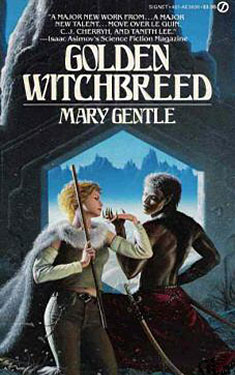
The first candidate I’d nominate is Mary Gentle. It’s incomprehensible to me that she’s been left out so far, unless it’s because she’s mostly thought of as a fantasy rather than a science fiction writer. Even so, Golden Witchbreed (1983) should be a no brainer for inclusion. It fits perfectly in that tradition of planetary romance established by writers like Leigh Brackett, Jack Vance, C. L. Moore and Ann McCaffrey, yet at the same time is a deconstruction of it and the colonial mindset that flows through much of the genre. It’s also perhaps the most straightforward, most accessible of Gentle’s novels, who usually has the reader working hard. If possible, the sequel, Ancient Light, which is more aggressive in its deconstruction, should also be included, perhaps with a foreword by somebody like Adam Roberts, in who I see a lot of Gentle influences.
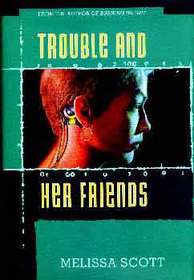
Cyberpunk has not been represented well in the Masterworks series, with not even Neuromancer included, just Lucias Shepard’s Life During Wartime. It’s a curious ommission to have such an important subgenre only represented by one book. You’d expect Neuromancer to be represented as for better or worse that’s the novel that shaped the genre the most, or perhaps Bruce Sterling’s Schismatrix for the road cyberpunk didn’t take, but I’d like to break a lance for another book. And that’s Melissa Scott’s Trouble and her Friends (1994). Published a bit late to be a cyberpunk pioneer, at a time when the internet was already going mainstream, it featured the usual sort of impractical but cool computer technology, but where it shines is in its treatment of politics. It’s one of the few cyberpunk novels that realised that even cyberspace politics matter, one of the few to predict the taming of the internet by commercial interests and the state as actually happened in real life. What’s more, it’s the only cyberpunk novel I know that takes seriously intra-cyberpunk politics, to know that there would be an incrowd and outsiders and to realise that quite likely, those outsiders outside of cyberspace — people of colour, LGBT people, etc — would be outsiders inside as well. In short, Scott predicted things like GamersGate.
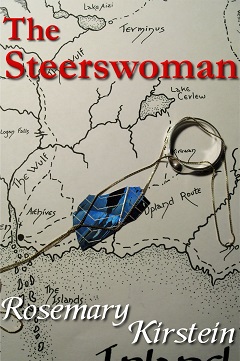
The Masterworks series has a good tradition of putting the spotlight on more obscure novels as well and one good candidate for this would be a novel I only this year discovered, Rosemary Kirstein’s The Steerswoman. This is a novel that’s at the heart of the science fiction genre yet almost unknown, one of the few stories that actually take seriously the idea of doing science, of finding out the shape of your world and discovering the scientific method in the process. It starts out looking as a fantasy novel, then slowly morphs into a novel of scientific discovery, one that never cheats and doesn’t depend on its audience knowing more than the protagonist. It’s also bloody well written, exciting and has three equally good sequels.
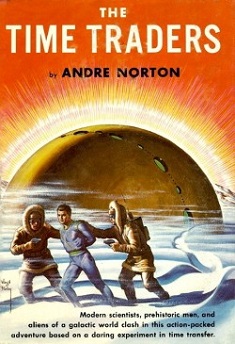
Who else is underrepresented in the Masterworks series compared to the influence she has had, is Andre Norton, somebody who e.g. Ann Leckie has named as an influence. Incredibly prolific, she’s written a lot of novels, so the problem here is chosing which ones to use. I’d go for an omnibus edition of her Time Traders series, four short novels of early sixties Cold War time travel derring do. Granted, these aren’t the best sf novels ever written, but they are influential books that inspired whole generations of readers. They’re typical of a whole current of science fiction that’s underrepresented today, that needs to be rehabilitated.
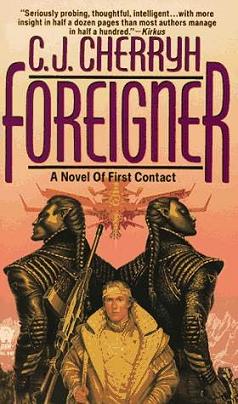
Another massively important science fiction writer not yet represented in the Gollancz SF Masterworks series is C. J. Cherryh, somebody who has been writing since the seventies, won the Hugo Award three times and has a friggin asteroid named after her. She needs including and there are several candidates for which novel to include and I like to make the case for Foreigner because it’s such a good showcase of what Cherryh does best. And what she does best is getting her usually young heroes in over their heads, out of their depth, acting on too little information, too little sleep, stressed out and with the fate of worlds riding on their actions. It’s a formula you’ll find in many if not most of her stories and it’s nowhere else shown so clearly as in Foreigner.
So those are my five choices for new entries in the SF Masterworks series. For better suggestions, go visit:
2theD
December 23, 2014 at 8:31 amThanks for the link to SFPotpourri… but don’t forget my other blog which has a list of translated fiction! And Melissa Scott’s novel sound like a good period-read. I’ll check it out, thanks!
My Eight Additions to SF Masterworks | Battered, Tattered, Yellowed, & Creased
December 23, 2014 at 4:04 pm[…] Martin’s Booklog […]
Updates: My Top 10 SF works (pre-1980) for inclusion in the Gollancz Masterwork series | Science Fiction and Other Suspect Ruminations
December 23, 2014 at 8:28 pm[…] Martin over at Martin’s Booklog […]